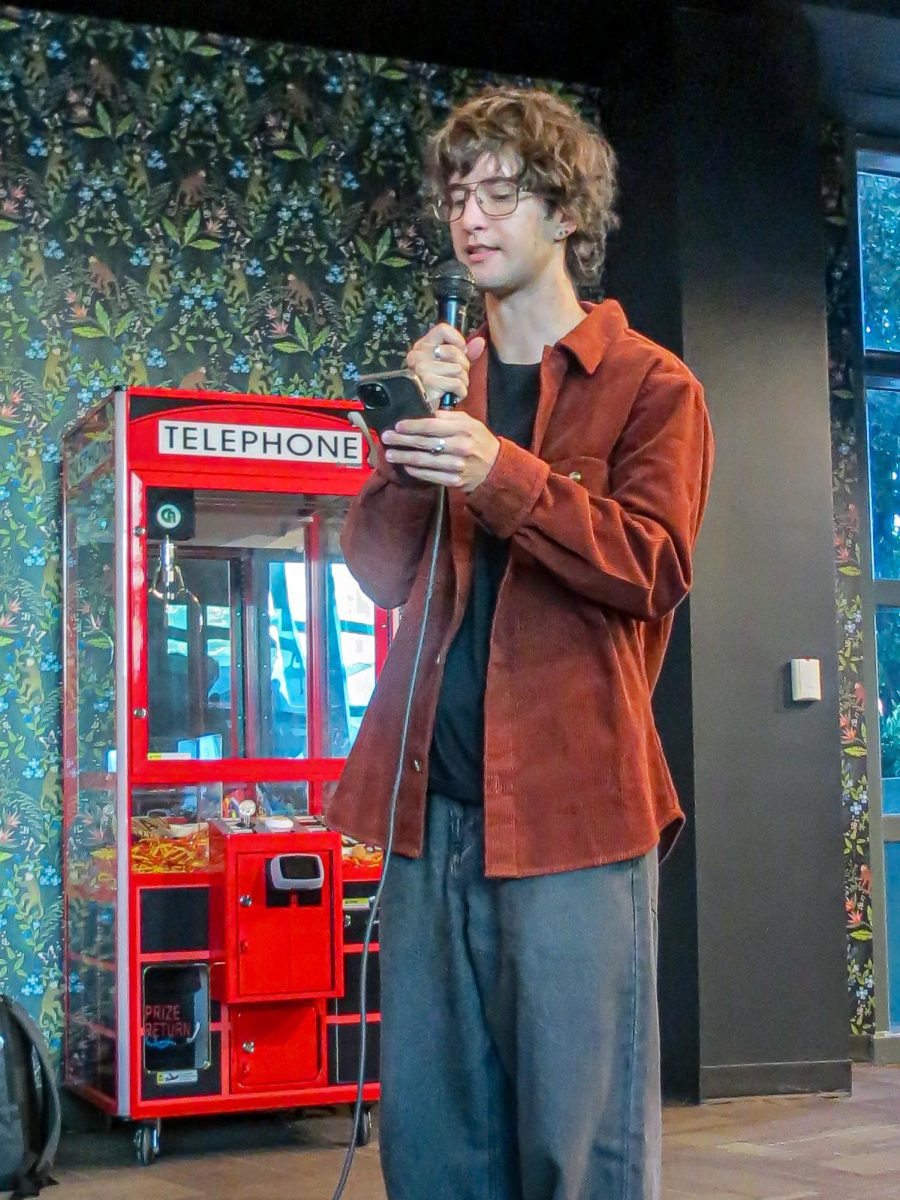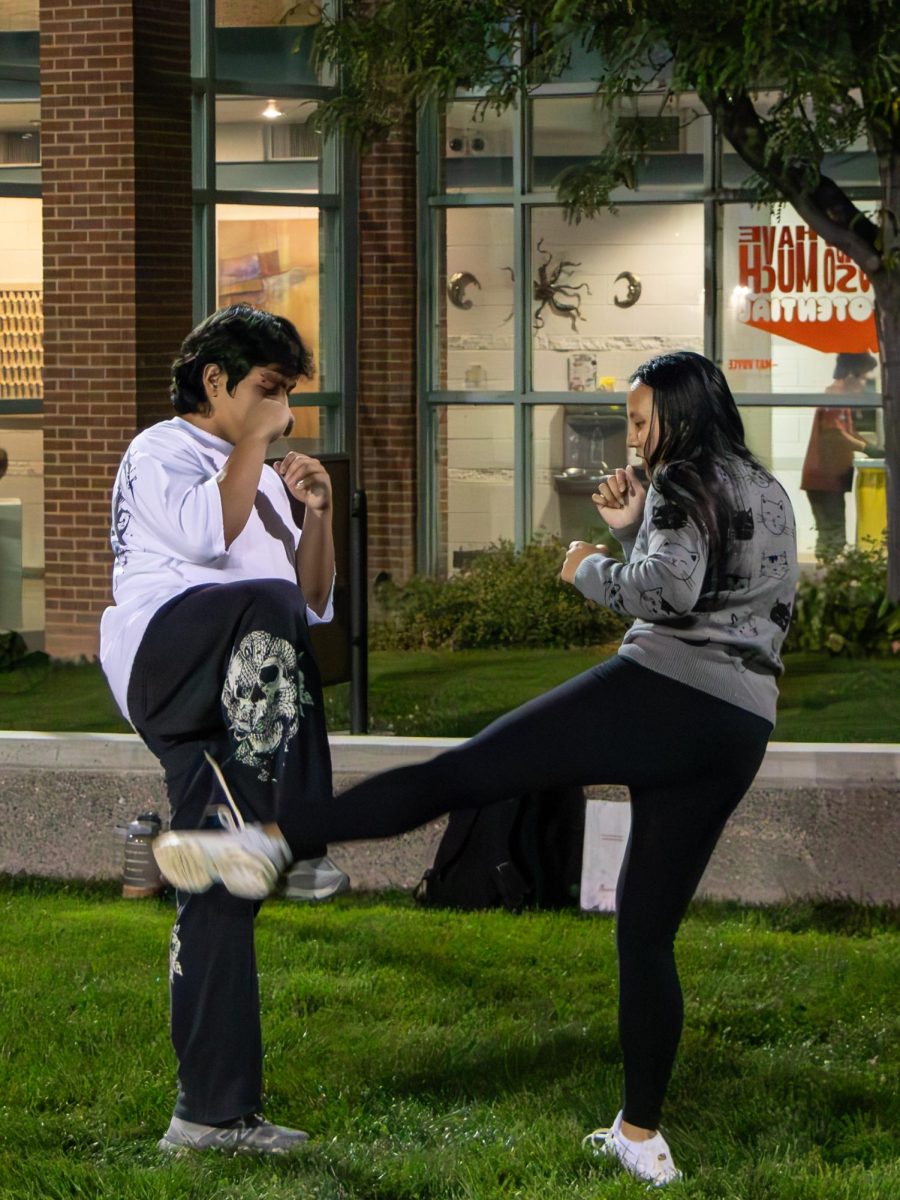“I got diagnosed with something called ‘Scheuermann disease’ a couple years back.”
25 year old Elizabeth Cotton from Evergreen, Colorado, has gone through quite the eventful senior year at Colorado Mesa University.
“Basically, when I was growing up as a kid, something happened that made my vertebrae instable, which caused my spine to be super curved,” Cotton said.
Because of this disease, Cotton had to get her first surgery when she was only 15. Her surgeon at the time thought she was suffering from something called ‘kyphosis’, also known as ‘hunchback’. Although this is usually something that occurs in older women, she trusted his judgement.

During her first surgery they put rods and screws in her back. “I didn’t know this back then, but I guess the rods were very unstable, which is why my surgeon wanted to take them out. However, he said the reason for them to come out was only because it looked weird,” Cotton said. “I was pretty young, and you could see the rods in my back. ‘You don’t want that,’ my surgeon said, ‘you’re a young girl’. And obviously my mom and I really trusted him.”
“A couple years later I saw that same surgeon again while I was working at the St. Mary’s hospital. My back had been hurting really bad and I was having a very hard time. He said that my back was very curved in the lower area now, but that there was nothing he could do. I trusted him again, since I had known him as a kid.”
“For about a year after that I thought it was normal that my back was hurting so much. Till, one day, I was wearing a tank top and my mom saw my back for the first time in a long time. That’s when we went to get a second opinion from a surgeon in Denver, doctor Burger. She quickly realized that I would need surgery and told me it would be a very extensive one.”
“I found out that I needed this surgery around May, so around the end of last semester. I got married in June, and only a week after my wedding I was in the middle of this surgery,” Cotton said. “I think I was in shock for quite a while.”
“I wasn’t even sure if I wanted to have surgery, but I didn’t have a lot of time to adjust to the idea. I didn’t really have a choice. If I wanted to have a chance to live a normal life and have kids and not end up in a wheelchair, I would have to do this surgery as soon as possible.”
Looking back, Cotton feels like she should have been more vocal about how much pain she was in at the time. “For some reason I had this idea in my had that it was normal to have such a painful back, seeing as I had had two back surgeries already. I think that, maybe if I hadn’t been so stoic about my pain, it would’ve gotten fixed sooner.”
Unfortunately though, during the surgery certain complications rose. Apart from paralysis being a big risk, Cotton started to bleed a lot during the surgery. The complete surgery took around ten hours. This caused another problem in itself, because it is dangerous to have someone under anesthesia for that long. They kept doing blood transfusions, but she would not stop bleeding.
“I didn’t know about these complications until they told me afterwards,” Cotton said. “Obviously, as I had been completely out of it at the time,” Cotton joked. “Actually, after the surgery I was still a bit out of it because of the painkillers. My family said I had never been so nice to them, as I kept telling everyone how pretty they were.”
“I reached out to the Nursing program right away in May, because I really wanted them to let me stay in the program. At fist they were pushing back a lot and said I had to go on the waiting list, which I really did not want. Especially because I was so close to graduating.”
Although it was a very hard time for her, Cotton is thankful for the support she got from the people around her.
“My mom was an angel. She never left my side and would help me the best she could. She also really tried to lift my mood, which must have been difficult.”

“I was so sick of being in the hospital and feeling all this pain all the time. I was on barely any pain medication because of the risks with my stomach, and I couldn’t change positions because of a tube they inserted for about a week straight. I really felt like I just wanted to fall asleep and not wake up.”
“At that point I was really thinking like, I hate hospitals, and I hate the medical field, and I never want to do this again. I told my mom, but she told me not to do anything rash, which was good,” Cotton said. “Because when I finally got better again and got to go home those thoughts immediately went away. I think these experiences even helped me see how much nursing is something I want to do.”
Her regained love for the medical field made her even more determined to graduate from the Nursing program. About a week after she got home, she started to email them again. They were very helpful but also a bit hesitant, which Cotton understands.
“In my head, I was comparing it to my first surgery. Back then I was back on my feet again after about three months, and I figured this would turn out to be the same.”
Slowly however, Cotton started to realize that going back to school was harder than she had anticipated. “Two days before my next follow up with my surgeon I fainted and fell flat on my back. It kind of hit me at that point that I might have been overdoing it.”
For the moment, Cotton is still on the waitlist. Her ultimate goal is to end up back in the Nursing program in the spring. “Right now I am better for sure. I’m not where I was hoping I’d be, and its taking some getting used to how straight my back is, but I’m definitely making improvements.”
“I wouldn’t have been able to do it without my mom and my mom and sister. And my surgeon was amazing, all of this is thanks to her skills and expertise. I’m very happy with her too, and just thankful for the support system that I had around me.”
“I think something I would like people to take away from this is that, if you’re going through something that is really hard, just know that you can do this. I think that if you try to stay positive and see the good in everything it will help you a lot with getting through it.”









